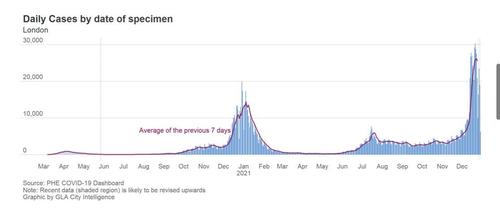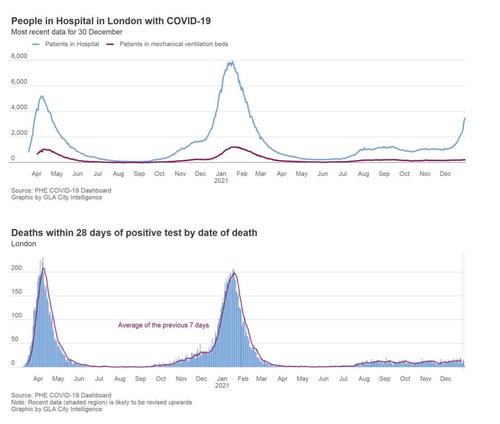A new meta-analysis suggests the risk for violence is higher in patients with schizophrenia, but some experts beg to differ, calling out study limitations and urging caution when interpreting the findings.
The study suggests patients with schizophrenia spectrum disorder (SSD) are 4.5 times more likely than individuals in the general population to perpetrate violence against others.
While the results showed comorbid substance misuse was associated with a significantly increased risk for violence in those with SSD, data on medication nonadherence, prior exposure to violence, childhood trauma, or other known risk factors were not included in the study.

Dr Seena Fazel
"I think one of the main implications of this study is that prevention of violence outcomes really should be a focus for clinical services, because these are important outcomes to prevent and many of the factors that increase risk are modifiable, such as substance misuse and treatment adherence," study co-investigator Seena Fazel, MD, professor of forensic psychiatry at the University of Oxford, United Kingdom, told Medscape Medical News.
Still, some experts urge caution when interpreting the findings, which they fear could perpetuate stigma against individuals with serious mental illness if not taken in the context of a study that shows association, not causation.
"While potential for violence is certainly a relevant consideration in assessing persons with schizophrenia spectrum disorder, it would be wrong to conclude from this study that schizophrenia spectrum disorders per se cause people to become violent," said Ronald W. Pies, MD, professor emeritus of psychiatry at SUNY Upstate Medical University in Syracuse, New York, who commented on the findings for Medscape Medical News.
The findings were published online December 22 in JAMA Psychiatry.
No Causal Link
The meta-analysis included 24 studies involving 51,309 individuals with SSD from 15 countries over four decades.
Risk for violence perpetrated by men with schizophrenia was 4.5 times higher (95% CI, 3.6 - 5.6) than their counterparts in the general population. Among women, the rate was 10.2 times higher (95% CI, 7.1 - 14.6) vs those without SSD.
The odds of perpetrating sexual offenses (odds ratio [OR], 5.1; 95% CI, 3.8 - 6.8) and homicide (OR, 17.7; 95% CI, 13.9 - 22.6) were also increased.
When restricting analysis to studies that used outcomes only from register-based sources, indicating a criminal arrest or conviction, absolute risks of violence perpetration ranged from 2.3% to 24.7% in men with SSD and from 0% to 5.4% in women up to a 35-year follow-up.
"That means that over a 35-year period, most men are not going to be involved in these criminal register-based violent outcomes," Fazel said. "And at least 90% of the women are not going to have any register-based violent outcomes."
When accounting for substance use comorbidity, risk for violence perpetration dropped sharply. Those with no substance misuse were 3.5 times more likely than those in the general population to commit acts of violence vs 9.9 times in those with substance misuse comorbidity.
"In these subgroup studies of people with dual diagnoses of schizophrenia and substance misuse, the risk was increased 10-fold," Fazel said. "If you look at people without substance misuse comorbidity, there remains a risk there of between three- to fourfold increase. It doesn't explain the association completely."
The investigators are quick to point out that this new study identifies an association between SSD and violence, and not causation.
"One important way to consider the association is to think of clinical services for people presenting with a schizophrenia spectrum disorder: Does the evidence suggest that violence is an important enough potential adverse outcome, for a minority of those individuals, such that support for this clinical need should be improved?" study investigator Daniel Whiting, BM BCh, a doctoral research fellow in psychiatry at the University of Oxford, told Medscape Medical News. "We highlight this as an implication of the findings."
Whether the association would change if researchers controlled for substance misuse in both the study and control groups is unknown. Also unclear from this study is what impact other risk factors may have on increasing violent outcomes in individuals with SSD.
Education, Treatment Adherence Important
Pies pointed out that, "notably, the risk for violence in the study population declined more than sixfold when comorbid substance abuse was excluded from the analysis."
That aligns with an earlier study conducted in Sweden by Fazel, which showed that after controlling for substance misuse, the rate of violent crime among individuals with schizophrenia was only slightly higher than in the general population.
"The fact is that people with schizophrenia who are compliant with proper medication do not commit violent acts any more than those in the general population," Lynn DeLisi, MD, professor of psychiatry at Harvard Medical School in Boston, Massachusetts and founding editor of Schizophrenia Research, told Medscape Medical News when asked for comment.
Indeed, Fazel's own research suggests treatment with antipsychotics cuts in half the risk for violent crime by patients with severe mental illness.
"The goal should be education of school officials, families, and primary care physicians to detect this illness early and treat it. Programs that make sure patients comply with medication once they begin it are equally important," DeLisi said.
Treatment adherence is important, but the first step toward violence prevention is high-quality risk assessment, said Fazel. His research team has developed a web-based, free risk calculator shown to help clinicians evaluate the risk that a patient might become violent.
Pies agrees with the importance of comprehensive, clinical assessments of modifiable risk factors, including substance use, homelessness, medication adherence, and conflictual relationships.
This kind of assessment, "in my experience, is rarely carried out in most evaluations of persons with psychotic symptoms or SSD," he said.
Perpetuating Stigma?
Another concern raised by Pies and DeLisi is how the findings might perpetuate stigma toward individuals with serious mental illness. Results from a study published last week showed that although attitudes toward those with major depression have improved in the United States over the past few decades, stigma toward those with schizophrenia has actually worsened.
The most effective approach to reducing stigma is to "face up to the evidence, then try and prevent the negative outcomes," Fazel said.
"The conclusion of this paper is that it's all pointing toward a strategy toward prevention by developing high-quality risk assessment and then developing high-quality treatment programs that include not just pharmacological treatments but psychosocial treatments and beyond," he added. "We know that's the way it works for other disorders as well."
Although mental illness stigma is a serious problem, Pies notes, "the risk is not so much that studies of this sort are carried out and then covered in the media, but that they are de-contextualized and reduced to 'bumper sticker' headlines."
"The public needs context and perspective," he said. "It needs to be informed that violent behavior is relatively rare among persons with psychiatric illness, including persons with schizophrenia and related disorders who do not also have a substance use disorder."
Indeed, some studies have shown that individuals with mental illness are more often the victims of violence than the perpetrators.
"Frankly, the public is much more at risk from the neighborhood lout who drinks heavily and repeatedly starts bar fights than from the average patient with a schizophrenia spectrum disorder," Pies said.
Fazel reports receiving funding from the Wellcome Trust. Disclosures for other study authors are fully listed in the original article. DeLisi and Pies have disclosed no relevant financial relationships.
JAMA Psych. Published online December 22, 2021. Abstract
https://www.medscape.com/viewarticle/965816



